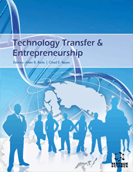Abstract
Many innovative advances took place in the last few decades especially in the field of medical care, with the aim of improving patients’ care by establishing more accurate diagnostic and therapeutic capabilities of physicians. This is especially true in the field of neonatal medicine, which witnessed large scale of advances over the recent years.
This publication examines the challenges associated with the spread of healthcare innovation which include the slow pace of dissemination and made few suggestions to accelerate the rate of innovation diffusion. This article also examines the readiness of healthcare organizations in adopting innovations with the goal of improving the healthcare delivery or resolving a problem in the current technology or system.
The aim of this article is to cover the impact of new innovative techniques utilization in healthcare and how this is affecting healthcare cost and delivery specifically focusing on Neonatal medicine. It also illustrates the challenges facing healthcare expansion in the future include how to balance the increasing expenditure of providing care, and at the same time maintaining the highest level of quality healthcare to patients by utilizing the advanced technological innovations.
Technological advances helped in substituting old methods of therapy with more effective methods which improved the survival and overall quality of life. At the same time this came with higher price tag as more economical resources are spent on research and developments which renders the new therapies more expensive. This article examines the benefits of these technological advances using one case study in neonatal medicine, the diffusion of new neonatal Neurally adjusted ventilator assist (NAVA) technology. This latest example of Innovative technology in the care of neonates offers total control by the infants in timing, magnitude and rate of ventilation. This control can potentially reduce the unwanted side effects brought on by traditional, operator controlled ventilation and improve health care delivery to critically ill neonates.
Keywords: Healthcare, innovation, neonatal medicine, NAVA, technology diffusion.
 12
12 4
4 1
1 1
1

